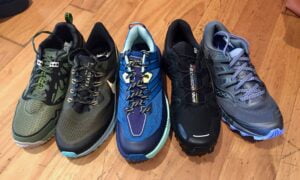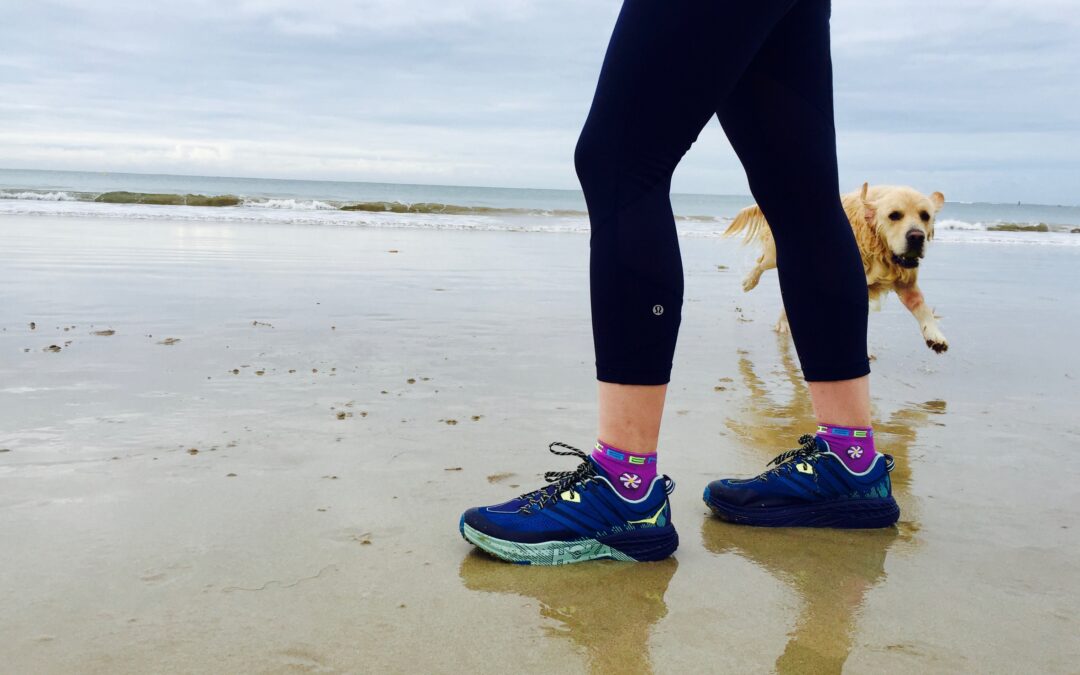Are you new to trail running? Unsure if you should be wearing trail or road runners? Or just unsure of where to start?!
It can be a daunting task to find the perfect shoe for the trails. It all comes down to your individual needs, so we have put together a guide to help.
Firstly, how do trail shoes differ from road runners?
- Rugged and grippy sole
- Generally feel firmer underfoot and more rigid
- Smaller range
- Mostly neutral but some corrective options
- Harder wearing upper
Secondly, factors to consider when purchasing:
- Feel (soft/hard)
- Fit (width and length) – Ideally thumb width from end of toe to end of shoe
- Offset (heel to toe drop) – Depending on injury you are safe to go a few mm less than your road runners due to the variability of terrain. Or to play it safe for your first pair and stick to the same offset.
- Correction (neutral/corrective)
- Tread (light to rugged) – Some treads are better for hard-packed dirt and rocky terrain, others for mud and soft ground.
- Distance (5km to Ultra)

Consider the type of trails you generally run on and that will lead you to the best tread. If you run on a combination of road and light trail (eg. gravel) you will be okay with a road runner. A good example would be the track from Torquay Surf Beach to Bells. But if the trails are more technical and generally wet or muddy, I would recommend a trail runner. A Gortex upper is generally not ideal for running due to its limited breathability and it tends to hold moisture.
I’ve summarised the most popular trail runners below and attempted to order from lightest to technical trail.
Light
| Name | Offset | Correction | Notes |
| Brooks Pure Grit | 4mm | Neutral |
|
| Nike Pegasus | 10mm | Neutral |
|
| Asics 2000 | 10mm | Midfoot |
|
| Hoka Challenger | 5mm | Neutral |
|
| Mizuno Rider | 12mm | Neutral |
|
Middle
| Name | Offset | Correction | Notes |
| Nike Wildhorse | 8mm | Neutral |
|
| Saloman Sense Ride | 8mm | Neutral |
|
| La Sportiva Kaptiva | 6mm | Neutral |
|
| Brooks Cascadia | 10mm | Neutral |
|
| NB Hierro | 8mm | Neutral |
|
| Hoka Stinson | 5mm | Neutral |
|
| Hoka Speedgoat | 4mm | Neutral |
|
| La Sportiva Bushido | 6mm | Neutral |
|
Technical
| Name | Offset | Correction | Notes |
| Saucony Peregrine | 4mm | Neutral |
|
| Asics Fuji Trabuco | 8mm | Midfoot/rearfoot |
|
| Salomon XA | 11mm | Neutral |
|
| Mizuno Daichi | 12mm | Neutral |
|
| Salomon Speedcross | 10mm | Neutral |
|
If in doubt, remember comfort is king! We always recommend going to a professional fitting footwear store like The Running Company, The Happy Runner or Active Feet as they can help guide you in store and have loads of knowledge.
I hope this information helps you choose the best shoe for your trail running adventures! If you have any specific questions, please do not hesitate to contact me or follow this link to book in for an assessment.
Maddie McMahon
Sports Podiatrist
